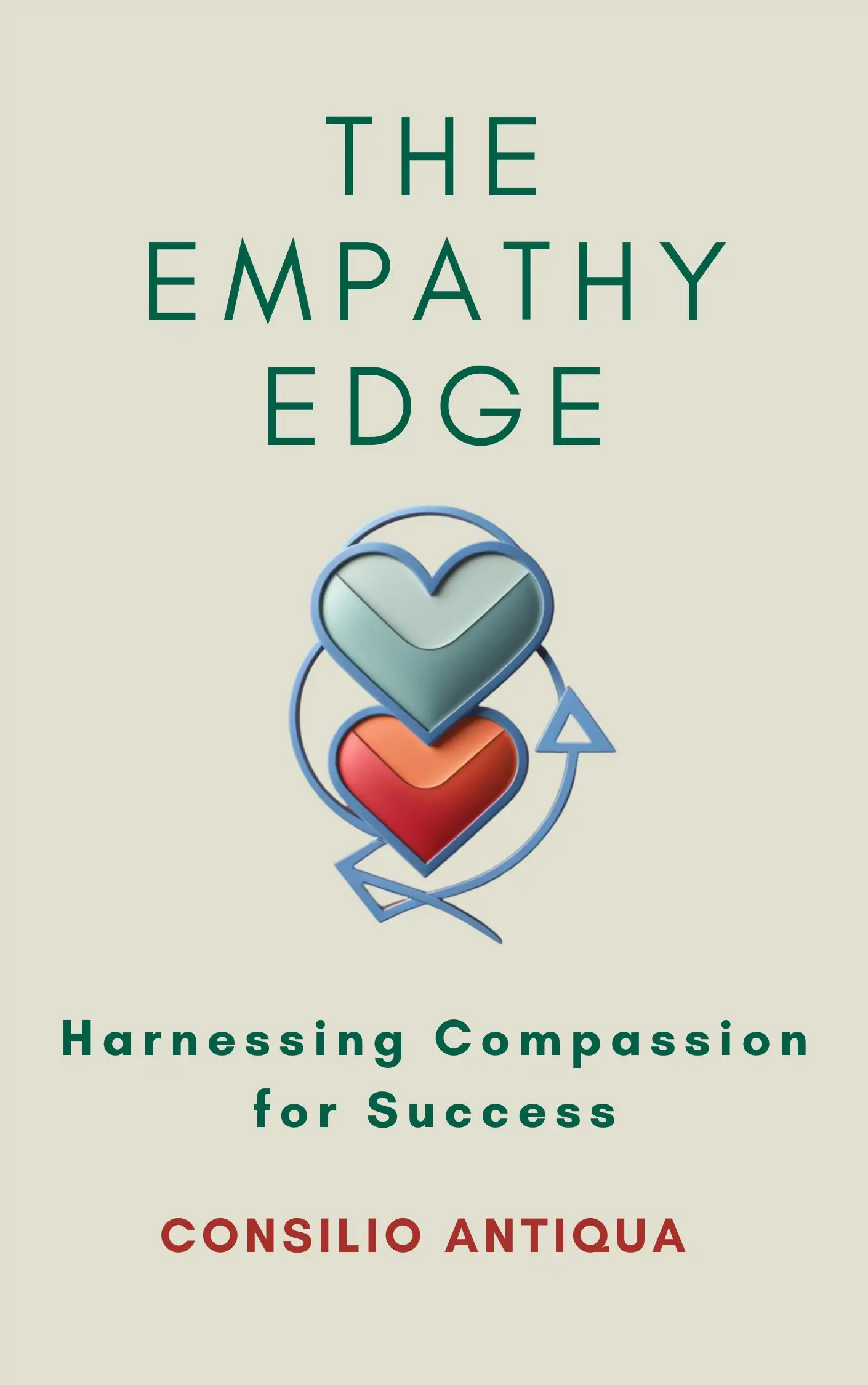
The Empathy Edge | Chapter 4: Stepping Into Their Shoes: Understanding Empathy
Chapter 4: Stepping Into Their Shoes: Understanding Empathy
My teenage daughter, Maya, stormed into the house, slamming the door behind her. "It's so unfair!" she cried, tears welling up. My gut reaction was to offer a comforting, "There, there, it'll be okay." But something held me back. Instead of jumping in with a solution or brushing off her feelings, I took a breath and asked, "Maya, what happened? Tell me about it."
That simple act of listening, of genuinely trying to see things from her perspective, changed everything. It opened the door for a real conversation, a connection that wouldn't have been possible if I had just offered sympathy or tried to fix the problem. That's the power of empathy.
This chapter isn't about fluffy feel-good stuff. It's about understanding the core difference between empathy and other emotions that often masquerade as it – like sympathy, pity, and even altruism. Getting these straight is like having a superpower for building stronger relationships.
Empathy vs. Sympathy: Beyond "Feeling Sorry"
Sympathy is like saying, "Aw, that's rough, I'm sorry you're going through that." It's acknowledging someone's pain and showing you care. Kind, sure, but it can sometimes miss the mark. It can feel like you're just skimming the surface of their emotions instead of diving deep to understand what's really going on.
Empathy, on the other hand, is like stepping into someone else's shoes and seeing the world through their eyes. It's about grasping their perspective, their feelings, and their unique experiences. It's not just feeling sorry for them; it's about truly connecting with them on a human level.
Think of it this way: Sympathy is saying, "I'm sorry you're feeling down." Empathy is saying, "I can see why you're feeling down, and I can only imagine how tough this must be for you." See the difference?
Empathy vs. Pity: Ditching the Power Trip
Pity can be a sneaky one. It's a type of sympathy that can actually be condescending and make people feel worse. It whispers, "Oh, you poor thing, you're so helpless." It creates a power imbalance, making the person on the receiving end feel small and dependent.
Empathy steers clear of this trap. It's about recognizing someone's strength and ability to handle their own challenges. It's about seeing them as an equal, not someone you need to feel sorry for.
Imagine you see a single mom struggling to manage groceries and a crying toddler in the checkout line. Pity might make you think, "Oh, that poor woman, she can't handle it." Empathy, however, encourages you to see her as a strong individual facing a tough moment, deserving of respect and understanding, not your judgment.
Empathy vs. Altruism: Understanding vs. Taking Action
Altruism is all about doing good deeds for others, putting their needs before your own. While empathy can definitely spark altruistic actions, it's not a requirement.
Empathy is about getting where someone is coming from. Altruism is about doing something about it. You can deeply empathize with a friend who lost their job without necessarily stepping in to solve their financial problems. And that's okay. You're still showing empathy by being there for them and lending a listening ear.
For example, you might deeply empathize with a colleague who's dealing with a sick parent. You might listen, offer words of support, and share your own experiences. But you might not feel the need to offer to cover their shifts or drive them to the hospital. That's perfectly fine. Your empathy is still valuable and meaningful.
Putting Empathy into Practice
Want to get better at this whole empathy thing? Try this:
- Think back to a time you felt sympathy for someone. What happened? What did you say or do? Did you feel like you truly understood their experience, or were you just going through the motions?
- Now, think about a time you felt pity for someone. What was the situation? How did it make you feel? Did you feel like you were genuinely helping, or were you maybe just trying to make yourself feel better?
- Lastly, recall a time you felt true empathy for someone. How did you approach the situation? What did you say or do? Did you feel a deeper connection with them afterward?
Taking the time to reflect on these experiences can help you fine-tune your empathy skills. Trust me, it's a superpower worth developing. It can enrich your relationships, your work, and even your own sense of self.
